What we read in 2022
Welcome back to our annual round up of recommended reads for the year. We asked staff across the library service for their top 3 titles of 2022 and here’s what they said.
Carly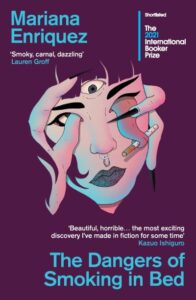
The Dangers of Smoking in Bed by Mariana Enriquez
I know we aren’t meant to judge books by them, but you know when you see a book cover and just know it is for you…well, that was me and this book. I really enjoyed this collection of creepy and unnerving tales set with a backdrop of Argentinian culture that was new and intriguing to me. Mariana Enriquez weaves together this collection with themes of loss, despair and outright horror, with exceptional descriptive wording. This makes for an equally revolting and compulsive read, you never quite know what the next story willl throw at you, not one for before bedtime!
The Dangers of Smoking in Bed (originally Los peligros de fumar en la cama) is a psychological horror short story collection written by Mariana Enriquez. The collection was first published in Argentina in November 2009. The book was translated to English in 2021 by Megan McDowell.
The novel has been critically acclaimed and was shortlisted for the 2021 International Booker Prize.
Girl A by Abigail Dean
If like me, you are a fan of crime fiction then this book might be for you. A different take, a book I felt like I had not read before, told from the perspective of Lexie or as she was known in the press ‘Girl A’ she is the survivor of horrendous abuse along with her siblings. This book follows her as she deals with life after such abuse and with growing up in a world where ‘Girl A’ haunts her life. When her mother dies in prison, and she has to deal with what is left behind and navigate her dysfunctional family dynamics. This is an interesting take on life after the crimes, after the court case and after the media circus has left town and charts the often painful life that now has to be lived. The crimes are dealt with in flashback and even though they are despicable they are dealt with sensitively.
The Wizards of Once by Cressida Cowell (books 1-4)
Read by David Tennant
My children and I devoured these audiobooks, expertly written by popular author Cressida Cowell and exquisitely brought to life by David Tennant, listening to this series before bed was certainly one of our highlights of 2022.
Wizards and Warriors are at war and have been for as long as most can remember, but a chance meeting between two children, one from either side, leads to a magical quest and a mission to save the land from dark magic. Having to join forces to fight a common enemy Xar, Wish and their gang of unlikely sprites and magical objects take us on a thrilling fantasy adventure across the 4 books with a brilliant ending that satisfied everyone. (No Spoilers!)
Evie
Three girls by Katie Clapham
Minnie, Lena and Alice might be in photos together for advertising their school, but that certainly does not make them friends. In fact, they are totally different. Minnie is dedicated to netball, sprinting and her boyfriend Daniel, Lena wishes she were the fastest runner at school and Alice can barely jog down the alleyway near her house. But when Minnie is injured, things begin to change, and new friendships are formed over their shared love of sport.
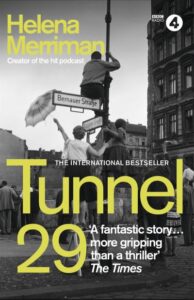 Tunnel 29: The true story of an extraordinary escape beneath the Berlin Wall by Helena Merriman
Tunnel 29: The true story of an extraordinary escape beneath the Berlin Wall by Helena Merriman
In this true thriller, a group of incredible young people work together to dig a tunnel under the Berlin Wall, eventually freeing 29 people from East Berlin. This book had me on the edge of my seat, it was so exciting I literally couldn’t put it down. It’s a written version of Helen Merriman’s podcast and her voice was so vivid that it was almost like I was listening to the story read aloud. I would recommend to anyone who is interested in history but also lovers of true crime and thrillers.
Difficult women by Roxane Gay
A collection of short stories by the immensely talented Roxane Gay. Every story about so-called “difficult” women packs an incredible punch. It’s definitely not for the faint of heart with topics such as abduction, racism and assault. Yet somehow, each story is beautiful, drawing you in and making you want to re-read to soak up any words or sentences you may have sped through too quickly in an effort to absorb her writing.
Halina
One hand to hold, one hand to carve by M. Shaw
One Hand to Hold, One Hand to Carve centres around a human cadaver that awakes in a morgue, but with two distinct personalities, Left, and Right. They create a life for themselves, but rifts emerge when it becomes apparent that they want different things. I’m worried that this book is going to be overlooked since it is a rather niche genre of folk-body horror (and do be warned, it is very gory), however at the heart of it is a great exploration of co-dependency and isolation, and what it does both to ourselves, and our partners.
The Jakarta method by Vincent Bevins
Read this book before you plan your next trip to Bali. In 1965 the US government helped the Indonesian military kill approximately 1 million civilians in the name of eliminating Communism. Using recently declassified documents, archival research, and eye-witness testimony, Bevins explores the legacy left behind. Bevins looks at how the successful elimination of Indonesia’s Communist party set the blueprint for the CIAs subsequent copycat programs in Brazil and Chile. The strength of this book lies in the sheer amount of research the author did, as well as the multiple perspectives from around the globe he includes. It is relatively unexplored part of Cold War history, but essential reading if you want to understand it. If you have seen The Act of Killing or The Look of Silence this is the perfect book to provide historical context.
Jayda
The Hunger Games by Suzanne Collins
An excellent beginning to my favourite series, which is an emotive story about revolution. It includes engaging characters and themes that are reflective of our world today.
They both die at the end by Adam Silvera
A bittersweet story about life, love, and death interconnecting, I couldn’t put it down.
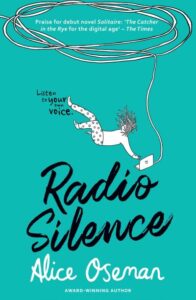 Radio silence by Alice Oseman
Radio silence by Alice Oseman
A beautiful tale about friendship and growing up. The author takes care to make readers that resonate with the characters feel seen and understood.
Lara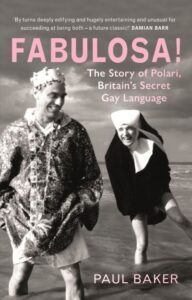
Fabulosa! The story of Polari, Britain’s secret gay language by Paul Baker
This book is very accessible, and provides a riveting story of the origins, development, spread and decline of this semi-secret language; it’s fascinating seeing how certain words were adopted, how they were changed and used, and how some have since moved into mainstream language. It also provides an insight into some of the diverse experiences of members of the gay community during the twentieth century. It shows how Polari was used as to express and bolster individual and group identities, as a safe form of communication in a hostile environment, and as a joyous counter culture celebration of homosexuality that thrived in spite of outside oppression. Bona reading.
Lucy 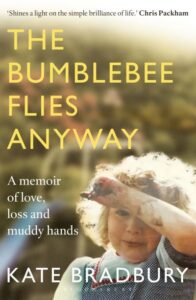
The bumblebee flies anyway : a memoir of love, loss and muddy hands by Kate Bradbury
Kate Bradbury’s The Bumblebee Flies Anyway is a profoundly moving and inspiring piece of writing. When Kate arrives at her new ground-floor flat in Brighton she finds, in place of a garden, a backyard of decayed decking. This presents her with an immediate challenge, and by utilising her skills and knowledge as a gardener over the next two years she gradually transformations this barren space into a richly fertile environment for wildlife. Throughout, we come to admire the imaginative and resourceful ways by which she achieves this, and on a very limited budget.
The transformation of her garden lies at the very heart of the book, and by the end we are, quite literally, rooting for her success. When Kate does finally succeed, her new garden has become a testament to the importance of places where our wildlife – and we – can thrive and survive; and it has also been central to her own story and resilience, as she is also caring for her seriously ill mother. Although essentially about the creation a garden, the unsparingly honest voice of its author lifts The Bumblebee Flies Anyway to another level. This is a book which stays with you, long after it has been read.
Into the dark by Fiona Cummins
‘Into the Dark’ is a twisted and twisting tale of deception and murder. In the world of crime writer Fiona Cummins, things are rarely what they first seem – and this is no exception. When the Holden Family suddenly disappear from their luxurious cliff top house in affluent Midtown-on-Sea, rookie Detective Saul Anguish soon realises that things are not quite what they seem. His own history, revealed in a series of flashbacks, is a complex and troubled one; he is the quintessential anti-hero, as are so many of our best detectives.
Cummins is a writer who loves ambiguity of character, the grey areas between the shadows. There is a creepiness about her work, a constant sense of impending menace, which is addictive.
Throughout Into the Dark, events unfold episodically, cleverly cutting backwards and forwards in time, jigsaw-like. This keeps us on our toes, keep us guessing, until the moment that all the pieces slot beautifully together – a testament to Cummins’ mastery of this genre.
Look again: the autobiography by David Bailey and James Fox
I started reading this with few expectations. To date, David Bailey has been the subject of numerous articles, exhibitions and art monologues; there seemed to be little more to say. Refreshingly, however, Look Again proved me wrong – helped in no small part by Bailey’s choice of co-writer, the journalist and biographer James Fox. Here, we find Bailey’s authentic voice. This is a very no-holes-barred account of his life – from its beginnings in a brutal post-war-torn East End and his struggle with Dyslexia. And from his crucial formative years of National Service, his photographic training in the studio of the fashion photographer John French, and his early fame in the 1960’s, the period with which he is most associated. He was part of the “Terrible Three”, along with the photographers Terence Donovan, and Brian Duffy – potent symbols of a seemingly more mobile and inclusive British society.
We find a rich chorus of characters: school friends, villains (it’s very strong on the Krays, of whom Bailey’s own father fell foul); acquaintances, lovers and Muses, family and wives. Among these are the models Jean Shrimpton and Penelope Tree, and actress Catherine Deneuve, interviewed here with Bailey, and without, by Fox – the journalist at work, providing us with a more nuanced view.
Overall, in Look Again we feel we are encountering the real Bailey – or as much of the “real” as he will allow. Irascible and entertaining, he comes across as someone who does not suffer either fools or phonies. We also see glimpses of a soft centre, an endearing sensitivity, and a keen instinct to avoid violence and danger – perhaps a legacy from his up-bringing. The overriding impression is of someone proud of his East End beginnings, who defines himself by them. And also someone with more than his fair share of luck – something Bailey readily admits – allied with prodigious talent; and we find that throughout his life and career, he has inspired affection and loyalty from all those who knew him well.
Sally
Sedated : how modern capitalism created our mental health crisis by Davies, James
The author questions why clinical outcomes in the field of mental health have not improved, and on some measures worsened, in recent decades, despite tens of billions of pounds having been spent on psychiatric research in the last twenty years and £18 billion being spent annually on mental health services in the NHS. This lack of improvement stands in stark contrast to most other areas of medicine. The main thrust of Davies’ argument is that it is the particular type of political and economic order defining our society since the 1980s which has led to this spectacular failure in the arena of mental health.
Davies illustrates how, over the past forty years, our main institutions, the workplace, the education system, the health service, have been reconfigured so that they have come to serve the needs of the neoliberalism (or new capitalism). He makes the point that, as suffering can be a very powerful driver of change, those institutions which define and manage human suffering have a particularly important role to play in ensuring that the prevailing economic regime remains unchallenged. Just as Karl Marx believed religion to be sedating the factory workers of his time, today our sedatives are personal debt and psychiatric medications.
The era of new capitalism is replete with possibility for an individual to come into contact with mental health services, but whatever the route, whether through a workplace mental health consultancy, through an Improving Access to Psychological Therapies worker in a job centre or via a GP, emotional distress is likely to be stripped of its possible meaning and framed as something wrong with the person, faulty brain chemistry for instance, which requires medical intervention. There will be no suggestion that harmful social, workplace or personal circumstances may have led to the distress which is now urging the person to mend something broken in their life. Human suffering, like so much else in our neoliberal age, has been individualised, privatised, depoliticised and privatised.
Since the 1980s, more and more things (objects, services, human qualities) have been commodified than ever before. At the same time, we have seen increasingly light-touch regulation, including of the pharmaceutical sector, and private interests encroaching into the National Health Service. In these circumstances, it was perhaps almost inevitable that emotional distress would be seized on as yet another opportunity for consumption and the accumulation of vast profits. Today, almost 25% of the adult population of the UK is prescribed a psychiatric medication each year, despite any good evidence that all this medication is improving our mental health.
I really cannot recommend this book highly enough. It is very accessible for the general reader, it’s incredibly interesting and it’s a powerful call for change.
The novel which I enjoyed most this year was one written and published over ten years ago but which I hadn’t yet read. This tale of moral corruption gripped me from its very first page. The plot is strong, the characters are adeptly crafted and a hedonistic, desperate society, in which everything, including a young man’s soul, is up for grabs is skilfully depicted. For me, gaining a possible insight into what it was like to live in Russia in the years following the collapse of the Soviet Union from an author who has travelled widely across the region was an added bonus.
The tyranny of merit : what’s become of the common good? by Sandel, Michael J.
‘These are dangerous times for democracy’, Michael Sandel tells us at the outset. Around the world, recent years have brought populist uprisings and growing support for autocratic figures. Mainstream political parties, although alarmed by these trends, display little understanding of the factors underlying them. Support for Trump in the States, the Brexit vote in the UK, for ‘strong man’ nationalist leaders in other countries, is typically attributed either to hostility to immigrants and a dislike of multiculturalism, or to anxiety in the face of globalisation and rapid technological change. While both diagnoses contain elements of truth, while conveniently absolving mainstream political parties of blame for having created the conditions which led to such upheavals, neither tells the whole story. Although focused on America, this book is widely relevant.
The author argues that it is the way in which mainstream parties and governments have conceived and carried out the project of globalisation over the past four decades which has led to the discontent now roiling politics. A technocratic faith in markets has held sway, bringing increasing inequality, devaluing national identities and narrowing the scope of democratic argument. At the same time, meritocratic attitudes towards ‘winners’ and ‘losers’ have taken hold, changing the terms of social esteem and devaluing the work done by the working class and much of the middle class. It is this ‘tyranny of merit’ more than anything else, Sandel contends, which has fuelled the populist complaint, ‘And the complaint is justified.’
A meritocratic sorting system is widely viewed as a good method of social organisation; it allows everyone, regardless of factors such as race, gender and class, to rise as far as their talents and hard work will take them, hence political debate often concerns the falling short of meritocratic ideals. In his book though, Sandel conducts a thorough and thoughtful examination of whether even a perfect meritocracy (and the USA, with more students at Harvard and some other Ivy League colleges coming from families in the top one percent of earners than from those in the bottom fifty percent, is far from this, as is the UK), would be satisfying, either morally or politically. A meritocratic society is not necessarily any more equal than one based on inherited privilege and, while inspiring in some ways, meritocracy undoubtedly has a dark side.
Sandel’s book is far-reaching and delves into philosophy, as well as politics, history and economics. Influential thinkers and politicians, including Frank Knight, Friedrich A. Hayek, Ronald Reagan, Margaret Thatcher, Bill and Hillary Clinton, and Barack Obama, are discussed.
The grace and eloquence with which Sandel advances original and compelling ideas enhance the power and beauty of this book.

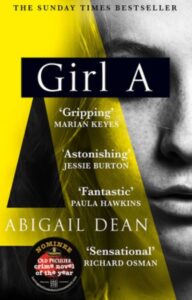
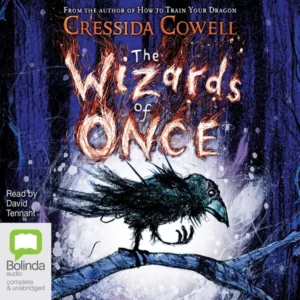
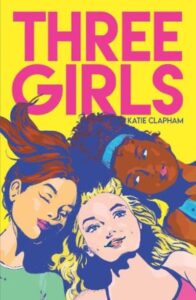
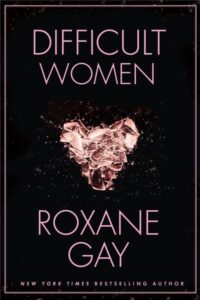
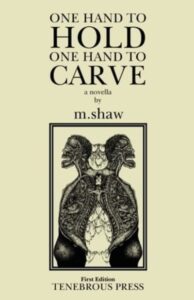
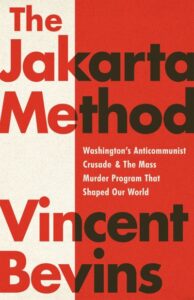
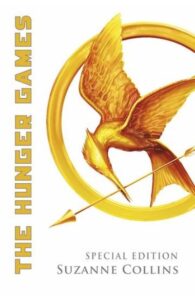
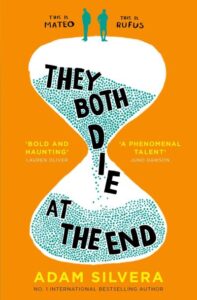
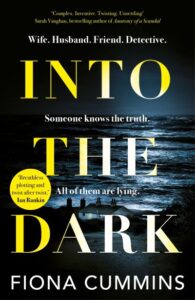
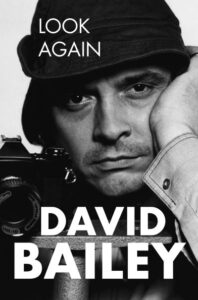
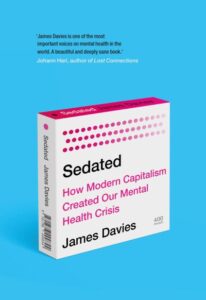
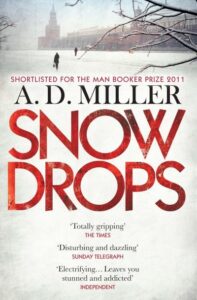
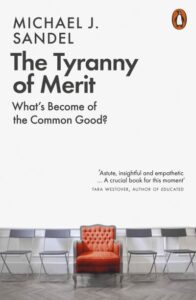
Leave a Reply